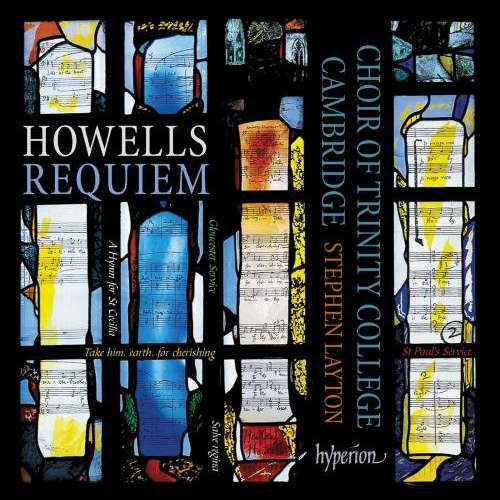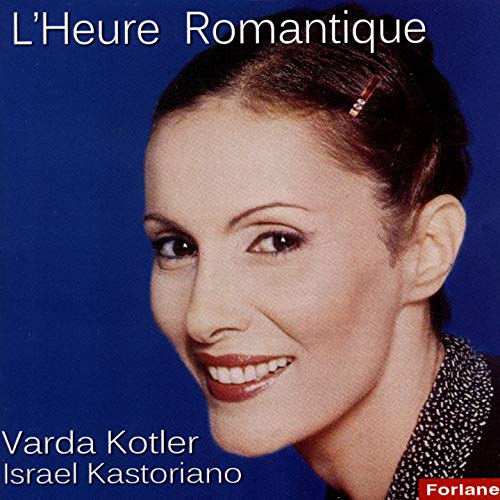 SPONSORED: CD Spotlight. Beautifully Apt - Choral music by Herbert Howells, heard by Robert Anderson.
SPONSORED: CD Spotlight. Beautifully Apt - Choral music by Herbert Howells, heard by Robert Anderson.
All sponsored features >>
- New Zealand
- New Philharmonia Orchestra
- SOI Chamber Orchestra
- Cecile Restier
- Dohnányi: The Veil of Pierrette
- Manuel Bustamante
- Patrick Henry PHAME Theatre
- Pictures of the Hidden
 SPONSORED: CD Spotlight. Well Realized - Varda Kotler and Israel Kastoriano - recommended by Geoff Pearce.
SPONSORED: CD Spotlight. Well Realized - Varda Kotler and Israel Kastoriano - recommended by Geoff Pearce.
All sponsored features >>
Kurt Weill
German composer Kurt Weill was born on 2 March 1900 into a Jewish family in Dessau. He began studying piano at twelve and began writing music at around the same time. In 1915 he began studying composition, music theory and conducting, privately, and he also began playing in public and writing Lieder. From eighteen in Berlin, at the Hochschule für Musik, he began to study composition with Engelbert Humperdinck, but then had to return to Dessau and work as a repetiteur for Hans Knappertsbusch, because of financial difficulties. He was able to resume his studies in Berlin at the end of 1920, this time with Ferruccio Busoni, but also played piano in a Bierkeller tavern.
He joined the music faction of the Novembergruppe, and his children's pantomime Die Zaubernacht was staged.
The 1920s and early 30s were successful for him - he began his creative partnership with dramatist Georg Kaiser, and met Lotte Lenya, whom he subsequently married (twice). His songs and musical theatre works began to become very popular. Weill's famous Die Dreigroschenoper (The Threepenny Opera), created with Bertolt Brecht, first saw the light of day in 1928.
He had to flee Nazi Germany in 1933, first to Paris and then to New York, modifying his style by studying American popular and stage music, and working in Hollywood.
Kurt Weill died in New York City on 3 April 1950, aged fifty. Lotte Lenya continued his work, creating the Kurt Weill Foundation.
A selection of articles about Kurt Weill
Ensemble. Deadly Sins - Giuseppe Pennisi reports on a Weill/Brecht double bill from La Scala Milan
CD Spotlight. Great Entertainment - SOMM Recordings' second volume of film music, enjoyed by Gerald Fenech. 'Iain Sutherland and his Promenade players display no want of energy and each track is tackled with effervescence and enthusiasm, making the music sound even more exciting than it was thought to be.'
Ensemble. Brecht and Weill's Final Collaboration - 'The Seven Deadly Sins' streamed live by Opera North, reviewed by Mike Wheeler
Inventiveness and Determination - Mike Wheeler recommends full support for Opera North's autumn 2020 schedule
Ensemble. Terrific Energy - Mike Wheeler reviews a recording of Opera North's recent production of Kurt Weill's 'Street Scene'
CD Spotlight. A Timely Resurrection - Music by Kurt Weill, enjoyed by Gerald Fenech. 'Recorded seventeen years ago, this reissue retains its freshness remarkably well, and the performance of both works is delivered with great elegance and elan.'
Ensemble. The End of Utopia - 'The Rise and Fall of the City of Mahagonny' by Kurt Weill and Bertolt Brecht, reviewed by Giuseppe Pennisi
Ensemble. Winning Flexibility - A recital by Agnieszka Kozlowska and Beate Toyka, reviewed by Mike Wheeler
Ensemble. Marxist Opera - Giuseppe Pennisi was in Berlin for the opening night of a revival of 'The Rise and Fall of the City of Mahagonny'
Ensemble. Pretty Good - A Neapolitan 'Threepenny Opera', reviewed by Giuseppe Pennisi
Ensemble. Remarkable Performance - Eisler, Gershwin, Mozart, Poulenc, Schumann and Weill from Katie Bray and William Vann, heard by Mike Wheeler
CD Spotlight. An Outright Winner - Dave Lee and friends' horn-centred pot pourri, strongly recommended by Howard Smith. '... positively mesmerizing ...'
Ensemble. A Riotous Production - Mark Anthony Turnage's 'Anna Nicole', reviewed by Robert Hugill
Ensemble. Delightfully Entertaining - Mozart, Schubert and Weill, heard by Mike Wheeler
Masks - Jennifer Paull continues her investigation of musical and theatrical masks
Masks - Jennifer Paull investigates a layering of musical and theatrical masks, with the omnipresent eerie reminder of the gas mask
Ensemble. A Unifying Mood - A new song cycle by Julian Dawes, heard by Malcolm Miller
Ensemble. A Sparkling Concert - Sabbath music from the Zemel Choir, enjoyed by Malcolm Miller
Ensemble. Refreshing Surprises - A concert in London by the Zemel Choir, enjoyed by Malcolm Miller
Ensemble. Actually Sung - Weill and Brecht's 'Threepenny Opera', reviewed by Robert Hugill
Ensemble. A Deft Touch - Mendelssohn and Kurt Weill from Sinfonia Viva, with no complaints from Mike Wheeler
Ensemble. Shade and Nuance - Chamber music by Julian Dawes, appreciated by Malcolm Miller
Ensemble. Telling Power - Malcolm Miller attends the final concert in a series devoted to music by banned composers
CD Spotlight. Truly Invigorating - Opera fantasies for violin, reviewed by Howard Smith. '... engaging musical finesse.'
Postlude - Jennifer Paull writes on the 25th Anniversary of the death of Cathy Berberian
Ensemble. Taut Austere Passion - Music with a Britten and Auden connection, performed by John Lofthouse and Stephen Rose, and reviewed by Malcolm Miller
Ensemble. Lustrous Sounds - Kurt Weill's 'The Rise and Fall of the City of Mahagonny', reviewed by Maria Nockin
Ensemble. Squeals of Delight - LA Opera's 'Hansel and Gretel', enjoyed by Maria Nockin
Ensemble. Three Premières - Malcolm Miller applauds the latest concert of music by Julian Dawes
Ensemble. Music in Captivity - Malcolm Miller was at a lecture recital by Ronald Senator, with Teresa Gobel and Miriam Brickman
Ensemble. The music of Julian Dawes - Malcolm Miller was at the first performance of 'Eleven Hebrew Folksongs'
Ensemble. Tremendous Energy - Kurt Weill's 'Arms and the Cow', reviewed by Mike Wheeler
The Designer Touch - Tonina Doráti and opera production, as explained to Bill Newman
Cathy Berberian: Legacy - On the 40th anniversary of 'The Miniskirt Affair', Jennifer Paull sets the mood of the 1960s into which Cathy Berberian's imaginative style of recital programming shook the conventional rafters of 'classical music' through sheer daring - her legacy to music-making
Ensemble. An eclectic program - Lawrence Budmen is impressed by Canadian/Armenian soprano Isabel Bayrakdarian
Ensemble. On the lake - Toronto's summer musical fare, including music by Wagner, Weill and Alex Eddington, sampled by Malcolm Miller

